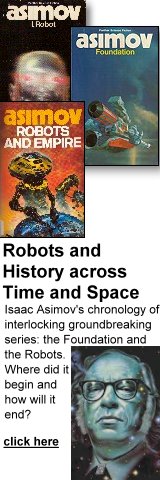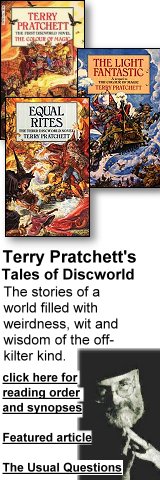Number one is the notion you need a dedicated reader. You don't. Any computer can do it, and there are quite a few free-download 'reader softwares' that will make a non-DRM e-book behave quite nicely for your computer. There are also several formats, many for specific devices; but the most common are .ePub, .mobi or .prc, and .pdf.
Your computer tends to come with the ability to read .pdfs. A good e-pub reader is Calibre; a good mobi reader is Mobipocket reader. Some will read the book aloud to you, should you wish or need that to be the case.
What's DRM?
"Digital Rights Management" is the e-book version of copy protection. The files sold by, say, Amazon, are DRM protected. This means the seller controls how and if the files are copied. Most independents rely on the honor system and sell non-DRM files, some types of which can be printed out, bound, and put on a shelf, should you wish. I look for bookbinding as a hobby to go on the rise, among real bibliophiles.
What Are The Advantages of a Reader Versus A Computer?
The dedicated readers offer the advantage of 1) lightness and portability -- about the weight of a paperback, 2) ability to read the page in sunlight, 3) really long battery charge: they only use power to turn the page, 4) they're easy to curl... up with by the fire, and 5) they're not hot when you have them in your lap. You can have thousands of books on a dedicated reader: a traveling library.
Disadvantages of a reader: 1) they're pricey, 2) some you can't read in the dark: you have to have light to see the page, color and lighting of the display are now available.
Advantages of using the computer or tablet for the purpose: 1) you can read it in the dark, 2) it's dead-cheap because you already own one, 3) you can see color pictures.
Disadvantages of a computer: 1) it's heavy, 2) it's hot, 3) it runs out of battery.
You Do Your Own E-Books. How? What About Covers, etc.?
What we do in our own operation: we are three writers with additional talents. One of us is good with computer systems. One of us is a graphic artist. We share out the work. We are not carbon copies of each other, so our output and style may differ.
We have found that: 1) you CAN embed and control fonts and spacing in several of the most popular formats, 2, if it's short, you can even put it out as graphics.
If you discover typos and other things, report them -- we can fix them, and when we accumulate enough of them to be worth a week's work, we can just send all the buyers a revised file.
What Do You Do When You Download an E-Book? What's the Process Like?
First of all, be sure it doesn't get stuck in your spam filter: spam filters are good about that.
1. If you buy a Kindle (.mobi) or Nook (.epub) file, just download it to your computer and use a USB cord to send it over to your device. (Or if available, you can use wireless direct to the device - ed.)
If you buy a multiple-format zipped file, You have to unzip it. Your computer should come with a zip utility. If somehow it doesn't, there's jzip: google it for a download.
Once unzipped, THEN you should see all the various formats, like 'filename.epub, filename.mobi, filename.pdf," etc.
2. Move the appropriate file to the appropriate place. Say you've got a Sony reader. You'd use a USB cable to move the 'filename.epub' item to your device. (Calibre is good for this - ed.) At that point, click on it in your reader menu, and it should open.
3. If you're reading it on your computer, a) Download and install a reader such as Mobipocket Reader or Calibre. b) Drag the chosen file to wherever you want to keep books you're using. C) Click on the filename. D) The installed reader should open right up and display the book ready to read. You don't have to save your place: it should remember.
For those needing a larger typeface, you can change the font size to suit you. Your third option with some file types is to print them out and read them on paper, even bind them and put them in your shelves.
Doesn't Piracy Make It Unwise To Put Out A Non-DRM Book?
Piracy: it's already out there. A lot of it. It will be. But people who like books (and who want writers to keep working) are happy to find legitimate e-books so they can support the writers, in my experience. Remember when you buy directly from us (http://www.closed-circle.net) you are sending ALL the money to the writer. Closed Circle takes nothing.
What's In It For Writers? And What About The Fate Of Paper Books?
I urge any writer with a big no-longer-in-print backlist, any poet, anybody who's having market troubles -- don't just go sit by the fire in the theory there's no help for it. The same internet that caused the problem can become the market. It's just going to take rolling up the sleeves and getting at it, or establishing contact with some very good-hearted readers, of which there are many, many, who want to help the Good Stuff stay alive. Save your paper books; but if there's a book you love, don't patronize a pirate -- e-mail the writer in question and find out if there's a legit e-book, and maybe help said writer, particularly those getting on in years, to get e-books up there that will pay that writer directly. Closed Circle is also willing to help by telling any writer how we do it and what software we use.
The Future
The fact that a majority of the science fiction backlist is slipping out of print and that the current market can't afford to issue the older books is a powerful inducement for those who care about this field. Can you readily find a copy of A Fish Dinner in Memmison? Or Tros of Samothrace? Can you find Space Hawk? Good luck --you'll pay a mint. Younger readers, the future of the field, need access to the whole range of this literature, most of which was created in paperback and which is now falling apart and deteriorating on cheap paper. These books need saving, and not just on the shelves. So even if you're a dedicated paper bibliophile, rejoice: the old books will continue to be read in e-form, and you can keep your beloved copy on the shelves in absolutely pristine condition, while reading in a form that you can take to the bathtub or read in the back yard without fear.
See also:
E-Readers, or Living with Paperless Books
(feature and reviews)
C J Cherryh answers The Usual Questions
(interview)
|
Like us on facebook |
by C J Cherryh © 2013 |




 Published in Melbourne, Victoria, Australia
Published in Melbourne, Victoria, Australia